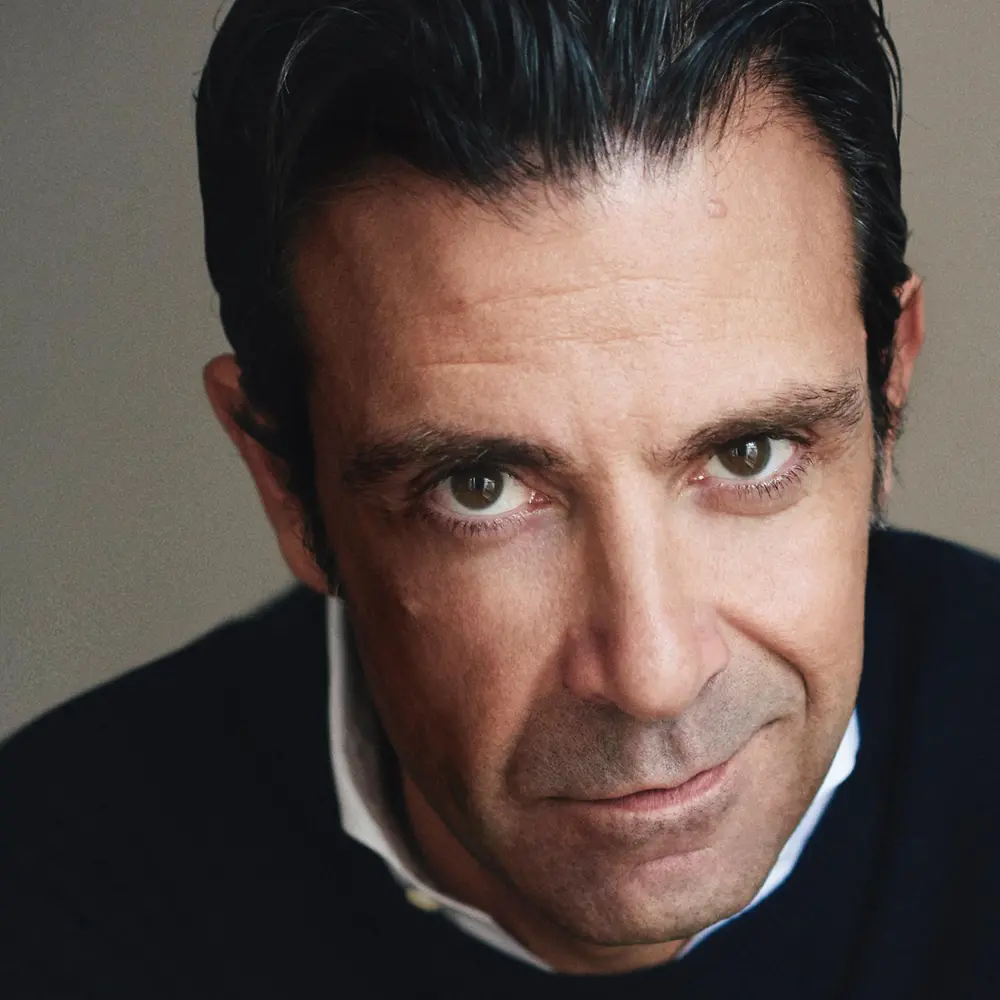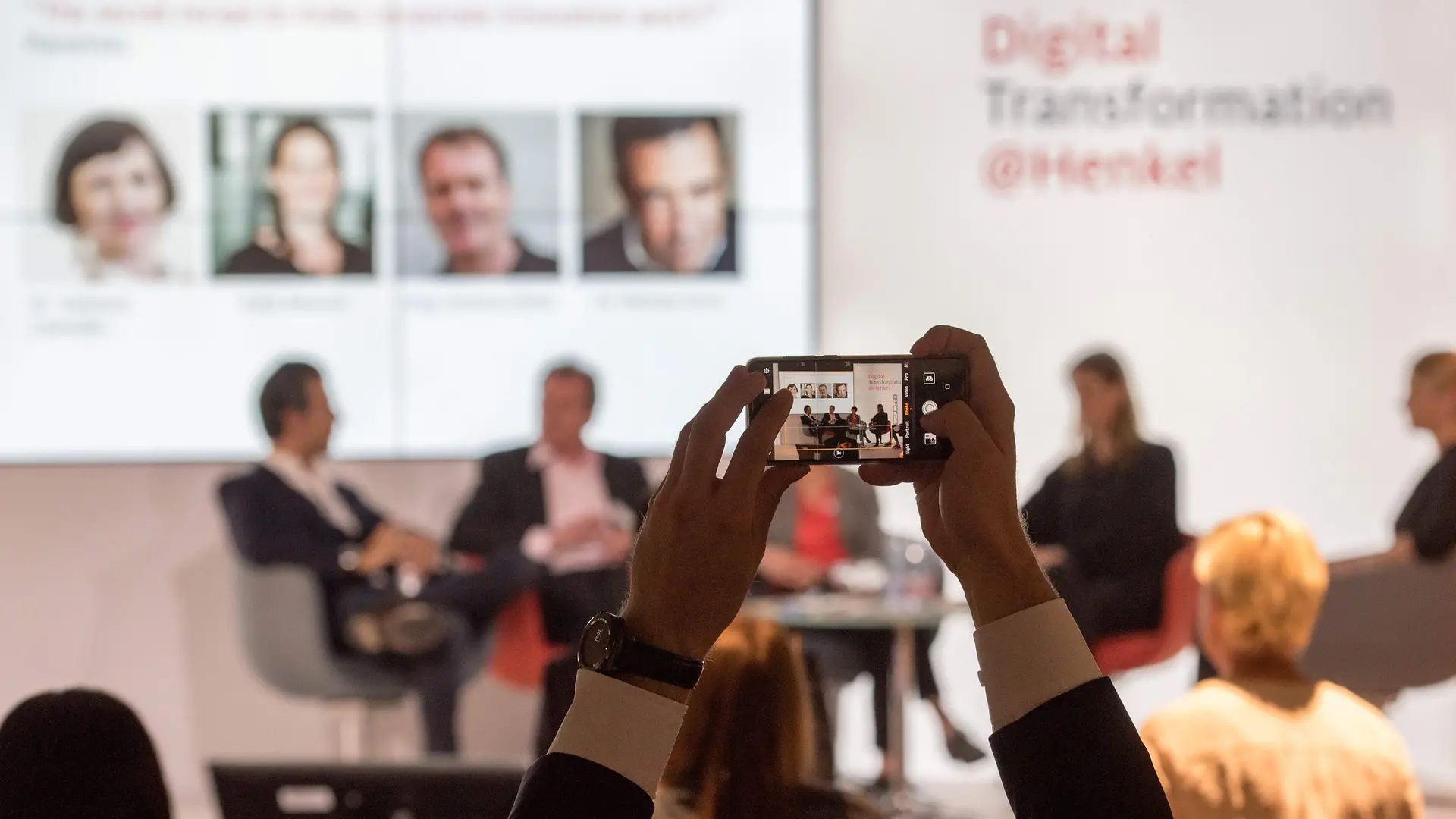Discover the brands and technologies from our business units Henkel Adhesive Technologies and Henkel Consumer Brands.
“Digital transformation – no one can do it alone”
In German culture, perhaps more than in others, change is met with great scepticism. It takes longer to “disrupt” and fundamentally reorganize things here. In my role as Chief Digital Officer (CDO), I think of myself as a catalyst, an agitator even, tasked with driving that change. Not in the negative sense of the word, but rather in the sense of fostering entrepreneurship by questioning existing structures and processes.
The digital transformation is one of the biggest changes of our time, and we cannot escape it. Traditional business models are being turned on their head, the communication with our customers is evolving. In the future, we will (have to) work completely differently as processes become faster and faster and networks grow more tightly knit than ever before. The term digitalization brings to mind a whole series of buzzwords, such as big data or blockchain. Many of them may even seem daunting.
How can we design transformations in a way that dissipates the usual anxieties and makes the changes more tangible?
1. My job, as CDO, is to explain what underlies these terms and technologies in order to break down inhibitions and misconceptions. I also need to make it clear why we do certain things. The reason is always the same: To provide our customers with the best products and services. Blockchain, artificial intelligence (AI) and fast data transmission via NFC tags are all important technologies. However, we never implement anything just because it is technically feasible. Any decision always starts with the question: “What’s in it for the customer?” This is because a transformation concept limited to introducing new tools, technologies and data systems would be missing the point. Technology should always be the means, never the end.
"The digital transformation is one of the biggest changes of our time, and we cannot escape it."
2. We have to dig down to the core, to our corporate culture. One of the major challenges associated with the digital transformation is creating the right culture within the company. This implies a change of mindset among both employees and the top management. That’s why I prefer to talk about corporate transformation rather than digital transformation. For example, most managers expect to see fundamental changes in their industry, but only a minority believe that these changes will affect their current business models. The cultural transformation that will be necessary within companies is widely underestimated. Going forward, every firm will (have to) be a tech firm. We must understand this, accept it and take action to make it happen. The organizational structure will also need to be adapted. That is why we urgently need a holistic approach that encompasses a deep transformation of the way in which organizations and their stakeholder groups think, interact and behave towards each other. Close internal collaboration between all areas of a company and the unconditional “commitment” of its management are particularly important in this context. There’s no such thing as “a little bit” of digital transformation!
“It isn’t just the tools, but also our mindsets that have to change”
3. More importantly still: There is no way it can be done alone! Internally, the digital transformation must be supported by everyone, but I would go even further than that. We need to build a network that spans beyond the company in order to design these fundamental changes together with our partners and industries. We must act collectively. No one can do it on their own – not at this level of complexity and speed. Take the issue of data, for instance: Customers don’t care whether it is the retailer or the manufacturer who collects the most, and the most significant, data. What customers want is for us to be capable of jointly doing something with the data that will be worthwhile for them. We must dispel the fear of taking something away from one another. At its core, the digital transformation is not about individual digital business models, but rather about the idea of taking a holistic approach to topics, networking with one another and sharing our knowledge.
We need to network, communicate and learn from one another
At the start of this year, about six months after joining Henkel as CDO, I founded Henkel X as a means to drive exactly this kind of collaboration. It is an open platform – a kind of ecosystem designed to channel and foster entrepreneurial energy. We do this by building a network of internal experts and external partners, by organizing interactive and cooperative events and formats – and by introducing new and agile ways of working. The network is open to founders, startups, entrepreneurs, venture-capital experts, industrial partners, science institutions, students… and even our competitors. More than 100 experts have already joined our mentorship club. We invite them to advise and accompany us as mentors on specific projects. Startups get to pitch their ideas during a monthly event series, which have already yielded various concrete pilot projects. These are just two examples to illustrate that entrepreneurs have everything to gain by opening up: Nobody can do this alone!
“I believe that we need a network which spans beyond the company”










